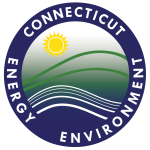Conditional Exempt Small Quantity Generators (CESQGs)

What is a CESQG? A CESQG generates the smallest amount of hazardous waste and as a result is the least-regulated type of hazardous waste generator. A generator qualifies as a CESQG if it meets all of the following conditions:
- does not generate more than 100 kilograms (220 pounds) of hazardous waste per calendar month; and,
- never accumulates more than 1000 kilograms (2200 pounds) of hazardous waste at any one time; and,
- does not generate more than one kilogram (2.2 pounds) of acute hazardous waste per calendar month; and,
- does not accumulate more than one kilogram (2.2 pounds) of acute hazardous waste at any one time.
For a typical liquid waste, 100 kilograms (220 pounds) equals about half of a 55-gallon drum. For more dense wastes such as solids and sludges, 100 kilograms can be much less than half a 55-gallon drum.
Note: Certain wastes (such as Universal Wastes) are not counted towards the quantity limits specified above. For details on how to properly determine generator status, please see the DEEP fact sheet Determining Hazardous Waste Generator Category or the RCRA Help! Webpage.
Information for CESQGs. Listed below are web pages and guidance documents that are helpful in assisting CESQGs to properly manage hazardous wastes and other, related waste materials.
- Conditionally Exempt Small Quantity Generator Handbook Contains detailed information on how CESQGs must manage their hazardous waste, and is presented in a convenient booklet format.
- DEEP’s CESQG Inspection Report Form Provides a copy of the inspection report form that DEEP inspectors use when conducting inspections at CESQG sites. This report form can be a helpful tool for CESQGs to use to check their compliance with hazardous waste requirements.
- DEEP Fact Sheet: Hazardous Waste Determinations/Knowledge of Process Provides detailed instructions on how wastes should be tested and evaluated to determine whether or not they are hazardous wastes.
- Hazardous Waste Determination Summary Sheet Helps CESQGs properly complete and document their hazardous waste determinations.
- Permitted Transporter List Provides a listing of the transporters that CESQGs may hire to have their waste hauled away for proper recycling or disposal.
- Permitted Facility List Provides a listing of facilities located in Connecticut that may accept certain types of hazardous waste. Note: Many more facilities are located out-of-state. You can find out more about these out-of-state facilities by contacting a permitted waste hauler, or by checking the web sites of other states' environmental agencies [Exit DEEP website].
- Bringing Small Business Waste to Household Hazardous Waste Collections The household hazardous waste collections in some Connecticut towns allow CESQGs to bring their waste to the event for proper disposal. However, in order for a small business to do this, it must submit certain forms describing the wastes that need to be disposed of, and obtain approval prior to the day of the event.
- Universal Waste Certain commonly-generated hazardous wastes such as batteries, thermostats and other mercury-containing equipment, mercury lamps (e.g., fluorescent lamps), and used electronics are regulated under a special, reduced set of requirements known as the Universal Waste Rule. This fact sheet provides detailed information on the proper management of Universal Wastes.
- Used Oil Used oil may sometimes be hazardous, but is most often non-hazardous. This link provides detailed information on how CESQGs must manage their used oil.
- Non-RCRA-Hazardous Wastes (Connecticut-Regulated Wastes) These wastes are not subject to hazardous waste rules, but may still not be placed in the ordinary trash in Connecticut. This fact sheet describes how CESQGs must manage these non-hazardous wastes.
- Polychlorinated Biphenyls (PCBs) PCBs are subject to a special set of rules that are separate from hazardous waste requirements. This link provides information on the proper management of PCBs.
Content Last Updated March 4, 2020

